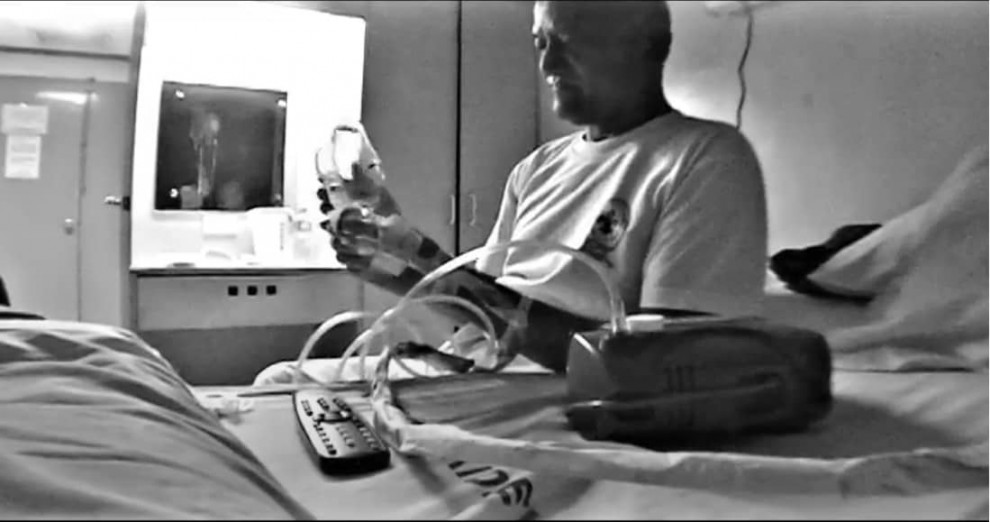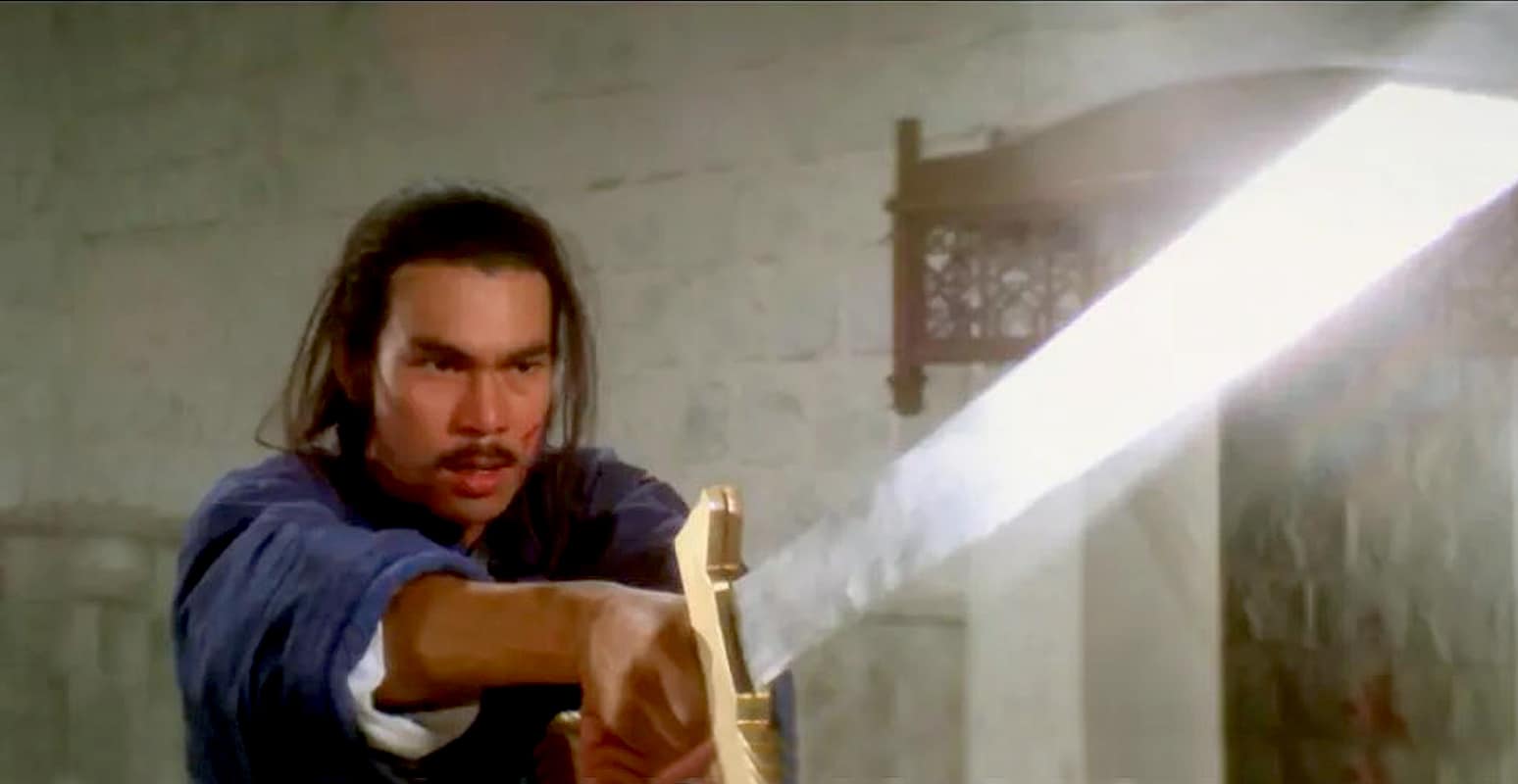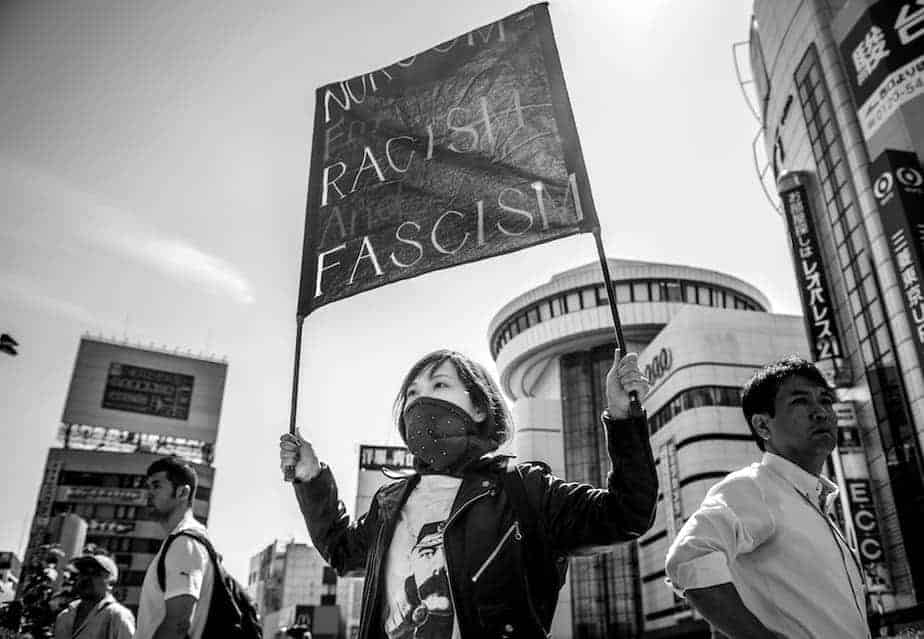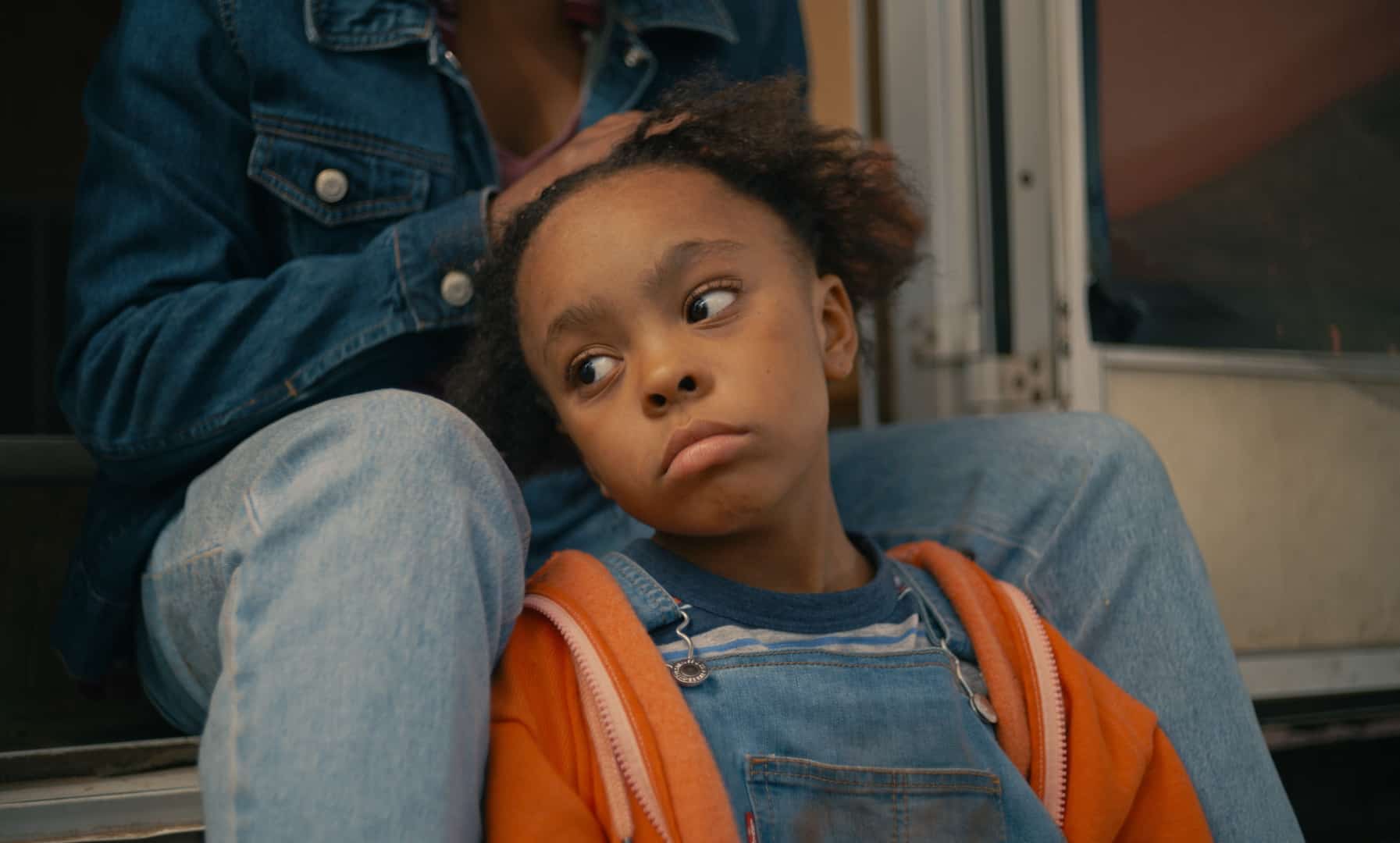Part documentary, part requiem, part visualization of a poem but as always, a mosaic of different sequences that come together in a truly unique way, “Breather” is one of Khavn's most personal films, as it deals with the last days of his father, Leonardo de la Cruz, who died of lung cancer at the age of 65.
The main part of the film revolves around an interview Khavn recorded with his father, which sheds much light on him as a character, both through personal stories of his family history, but also through his opinions, tastes, etc. This interview is “interrupted” by various footage, that includes sequences of Khavn with his piano teacher (who is not very keen on being recorded), Khavn's niece and nephew shooting with a camera at the hospital Leonardo was treated, Khavn's daughter, and various other sequences of kaleidoscopic nature, where the director's poems are presented through images. The initial scene, with Leonardo trying to breathe through a machine in the hospital, induces the film with a fatalistic atmosphere, which is toned down, though, through the aforementioned sequences.
If one were to use a single term to describe the film's context, it would be bravery. Leonardo is brave for revealing so much of himself, his history and his dire situation both to his son and to the camera. Khavn is also brave for the same reasons and for the way he manages to use his art to both pay tribute to his father and, perhaps, to overcome the impact of his death, with his lyrics, that deal with the concept of creativity, life and death, pointing towards this direction.

Khavn's approach is the one that “forbids” the film from becoming a melodramatic tear-jerker, since the main theme would definitely be up for something like that. However, the mosaic approach, the laughter of the kids and Khavn himself, the footage of the rehearsals of a band (where Khavn's mother also sings at one point) and the way Leonardo conducts himself, move the film into a whole other direction, that does not invite any kind of forced sentimentalism, in probably the best trait of the narrative.
Furthermore, another very important aspect of the film is that it finally reveals an actual part of Khavn as person, not just as an artist (even if the two seem to be inseparable), and offers another level of understanding for this enigma of a filmmaker.
As usual, Lawrence S. Ang's editing implements a sense of chaos, which, is toned down a bit, however, due to the main “arc” of the interview with the father, which provides an anchor for the whole narrative. The black-and-white cinematography follows the rules of the home-video for the most part, with the exception of the scenes where Khavn's poems are presented, which have an experimental music video essence.
“Breather” is a very important movie in Khavn's huge oeuvre, mostly because it is very personal and quite realistic, and probably one of the most approachable.















